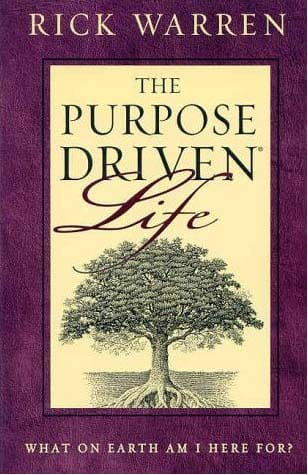 By Tim Dalrymple -- May 4, 2009
By Tim Dalrymple -- May 4, 2009
In evangelism today, innovation is everywhere. Many churches find the old models less effective, and even offensive in light of postmodern sensibilities. Twenty years ago, a typical evangelistic encounter involved a nervous college student, a pamphlet, and a park bench with an unsuspecting "unsaved" stranger. In an era of podcasting preachers, Jesus tweets, and Facebook fishers of men, evangelism is best located, some believe, within the fabric of preestablished relationships nurtured in small groups, not a dictation of truth from above but an investigation of life side by side.
One of the basic questions in evangelism today is this -- believing or belonging, which comes first? If the way to Christ begins with persuasion, then evangelistic ("seeker") small groups may choose apologetic works like Lee Strobel's The Case for Christ, Paul Little's Know Why You Believe, or William Lane Craig's more high-powered Reasonable Faith. Yet other recent works seek to persuade in an existential mode. N. T. Wright's Simply Christian describes the beauty and sensibility of Christian life and belief, while John Ortberg's Faith and Doubt seeks not to remove every last vestige of uncertainty but to find trust in God on the "razor's edge" between faith and doubt. Rick Warren's The Purpose-Driven Life, still a highly popular evangelistic tool, frames the gospel as the answer to our most fundamental existential question: as it says on the front cover, "What on earth am I here for?"
However, what if it is better first to bring non-Christians into the body of the church, where the Spirit of Christ lives and breathes, and worry about beliefs later? Toni Kim, minister of membership at Park Street Church in Boston, believes that "evangelism happens first by belonging." The relational approach often involves meals, videos and discussions centered on basic questions. Park Street uses Christianity Explored, similar to, but less charismatic than, the still-popular Alpha Course.
In this vein, InterVarsity Christian Fellowship has "reimagined evangelism" as "inviting friends on a spiritual journey," and they offer "GIG's" or Groups Investigating God, in which Christians invite friends to conversations on everyday questions ranging from God to relationships and sex. "You're not going to argue anyone into faith at this point," says Kathy Tuan-MacLean, an area director for InterVarsity, so it is better to offer "the experience of God through scripture, prayer and community." The "G12" movement, which has led to explosive growth in churches in South America and beyond, also focuses on deep discipling relationships with twelve people, each of whom then evangelizes and disciples twelve more in the same way.
Some small groups even meet online in groups on Patheos.com.
Both Kim and Tuan-Maclean, however, assert that the best evangelists are skilled in a variety of approaches. Willow Creek's Becoming a Contagious Christian encourages each person to find the evangelistic style that best suits his gifts and personality. Galen Dalrymple, a minister in Cloverdale, CA, says that the mistake is to put everyone in the same basket. "No program will work for everyone. Different people have different needs and different stumbling blocks." He recommends the NOOMA video series, and John Eldredge's Epic as works that appeal to a broad spectrum of personalities.
The only evangelism essentials, of course, are two people fully present to one another, the Bible in hand or in heart, and the Holy Spirit. No human book or DVD "saves" anyone. God does the saving. Some fear evangelicals run the risk of over-programming. Danny Hall, a pastor in Pleasanton, CA, favors the Starbucks strategy of creating a "third space" where believers and non-believers interact in a non-threatening environment. However, "Some of that gets artificial after a while," he cautions. "It may start to smack of manipulation, as though people are the object of a niche marketing scheme." Bill Hybels is surely correct that evangelism often begins with the brave but simple act of walking across the room, and must carry on in the spiritual discipline of hearing another person while listening to the Holy Spirit.
Evangelism stands among the most ancient of Christian practices, dating back to the life of Christ, and was long considered the consummate act of Christian love-"one beggar," in D. T. Niles' famous formulation, "telling another beggar where to find bread." Yet it also constantly evolves. Evangelism is the place where the ever-turning wheel of culture meets the bedrock of truth, where changing times meet changeless realities. The American evangelist today faces the task of using-but not needing-the powerful tools at his disposal, while seeking divine direction, in order to minister to those who would first believe as well as those who must first belong.
1/1/2000 5:00:00 AM




